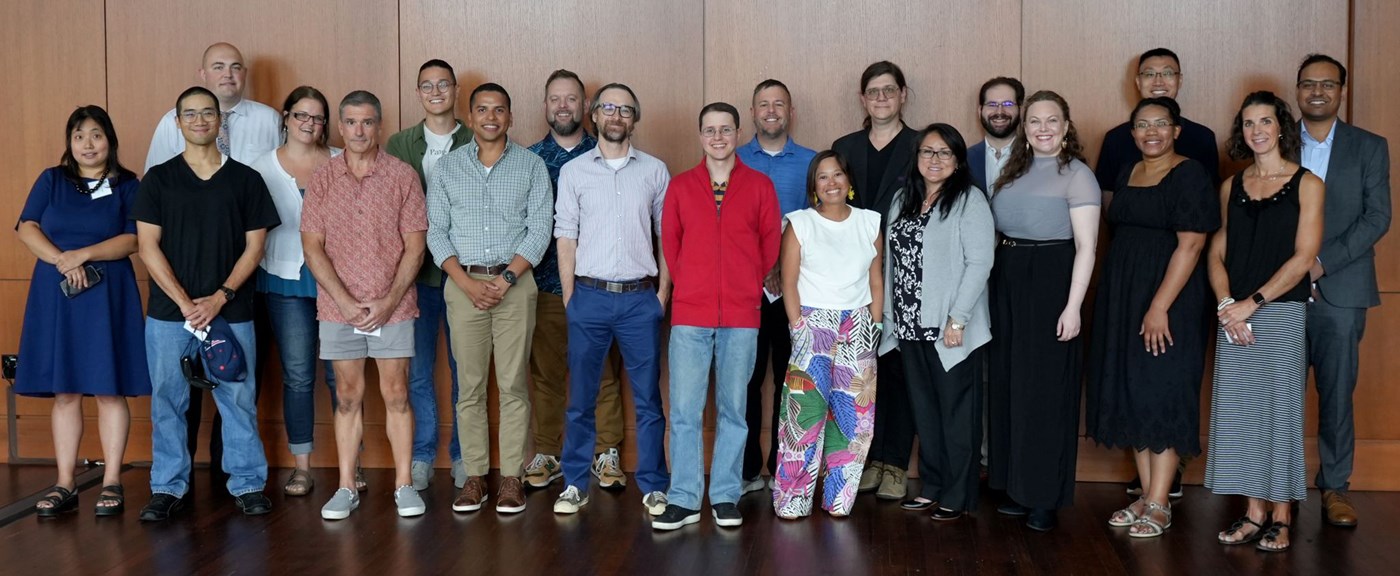Welcome to UMentor at UMass Lowell
The goal of this program is to provide a framework for all new full-time faculty to cultivate meaningful relationships with fellow mentors who can offer insights and advice as you navigate your career, explore new career paths, or consider further education and training. UMentor at UMass Lowell (UML) strives to facilitate organic mentoring relationships by connecting new faculty with experienced colleagues at UMass Lowell. This program is intended to support the expansion of networks, contribute new knowledge and insights, foster a sense of belonging, and build new skills.
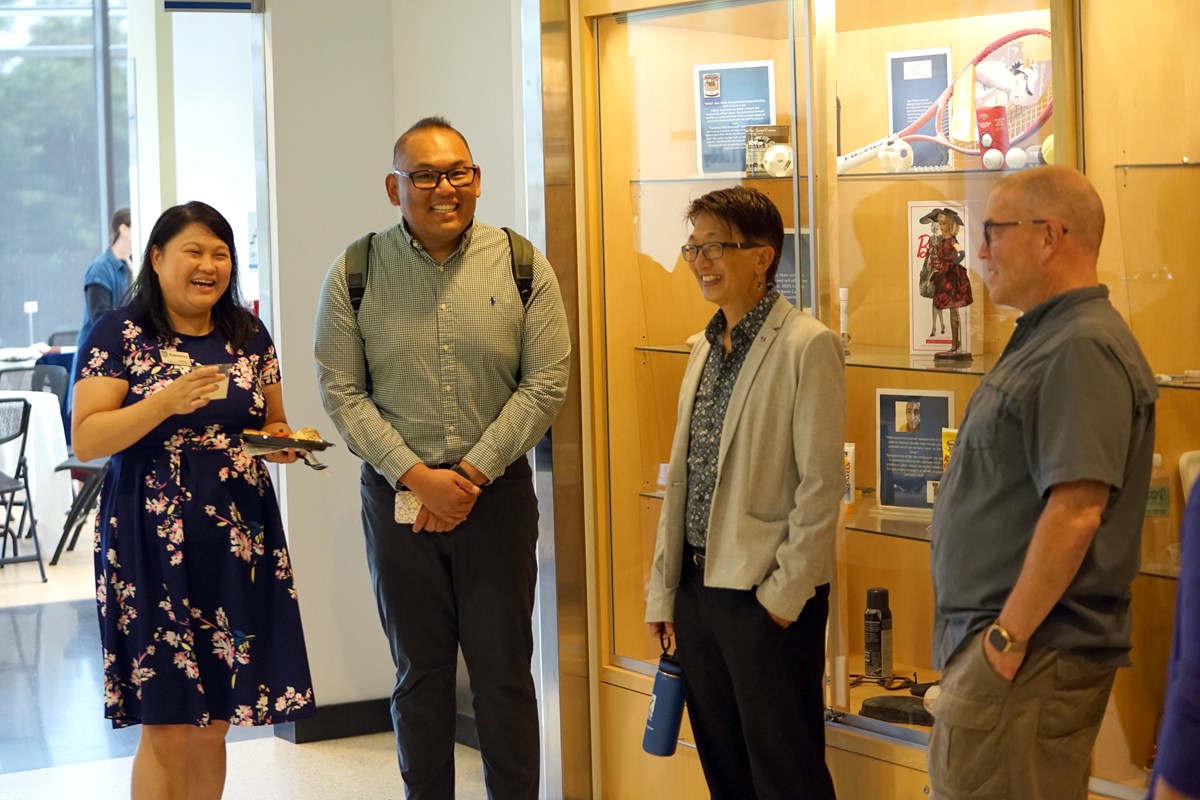
UMentor 2024 Faculty Leads Yanfen Li and Mark Hsu engage in discussions with mentors and UML Chancellor Julie Chen during the fall lunch gathering.
What sets UMentor apart?
Organic Connections: Unlike programs that assign mentors, UMentor allows new faculty to browse profiles of potential mentors and choose who they feel are a natural connection with, both professionally and personally.
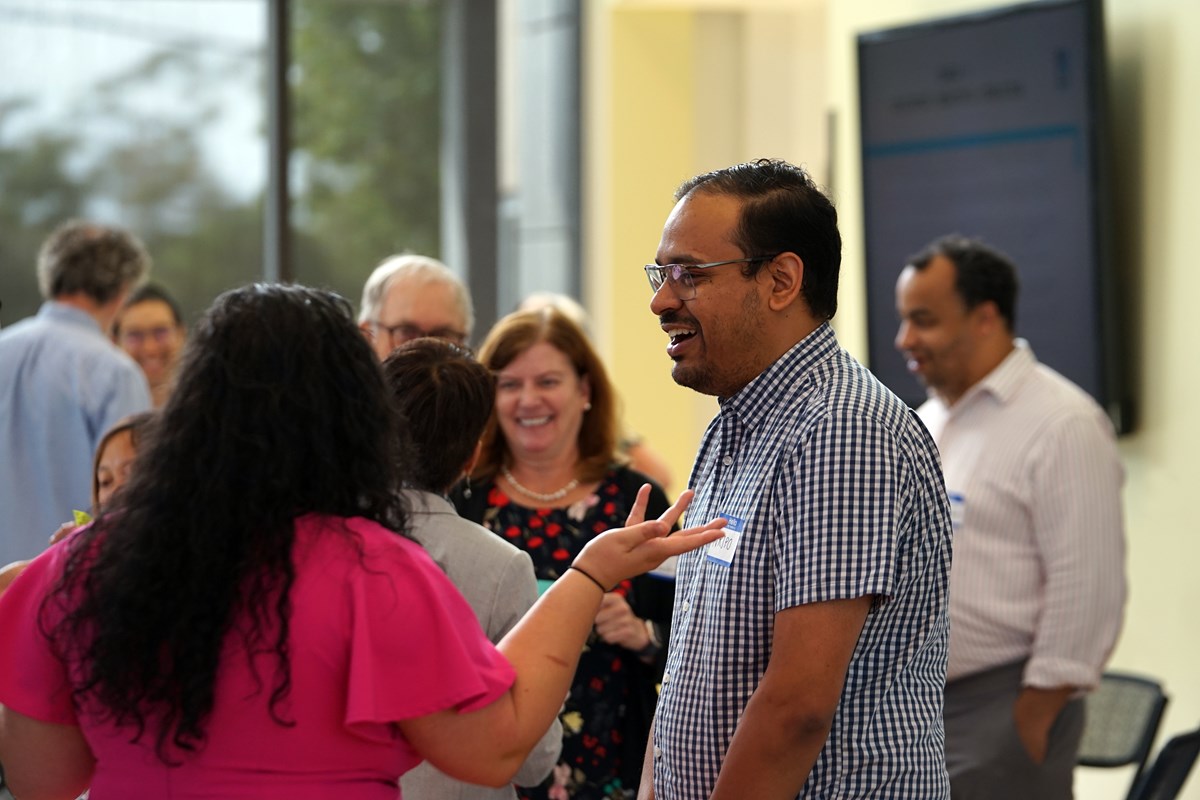
The 2024 UMentor group got early access to materials to campus resources, allowing faculty to easily access support for their teaching, research and service needs.
Holistic Approach: We recognize that mentorship goes beyond academic guidance. UMentor encourages mentors to share not only their professional expertise but also their personal interests and hobbies, fostering well-rounded relationships.
Flexible Mentoring Options: Whether it's a one-time consultation, a long-term mentorship, or group mentoring, UMentor accommodates various mentoring needs, ensuring new faculty receive the support they seek.
Community Building: By facilitating connections based on shared interests and experiences, UMentor aims to create a vibrant community where faculty can thrive, collaborate, and feel a strong sense of belonging.
How to Become A Mentor
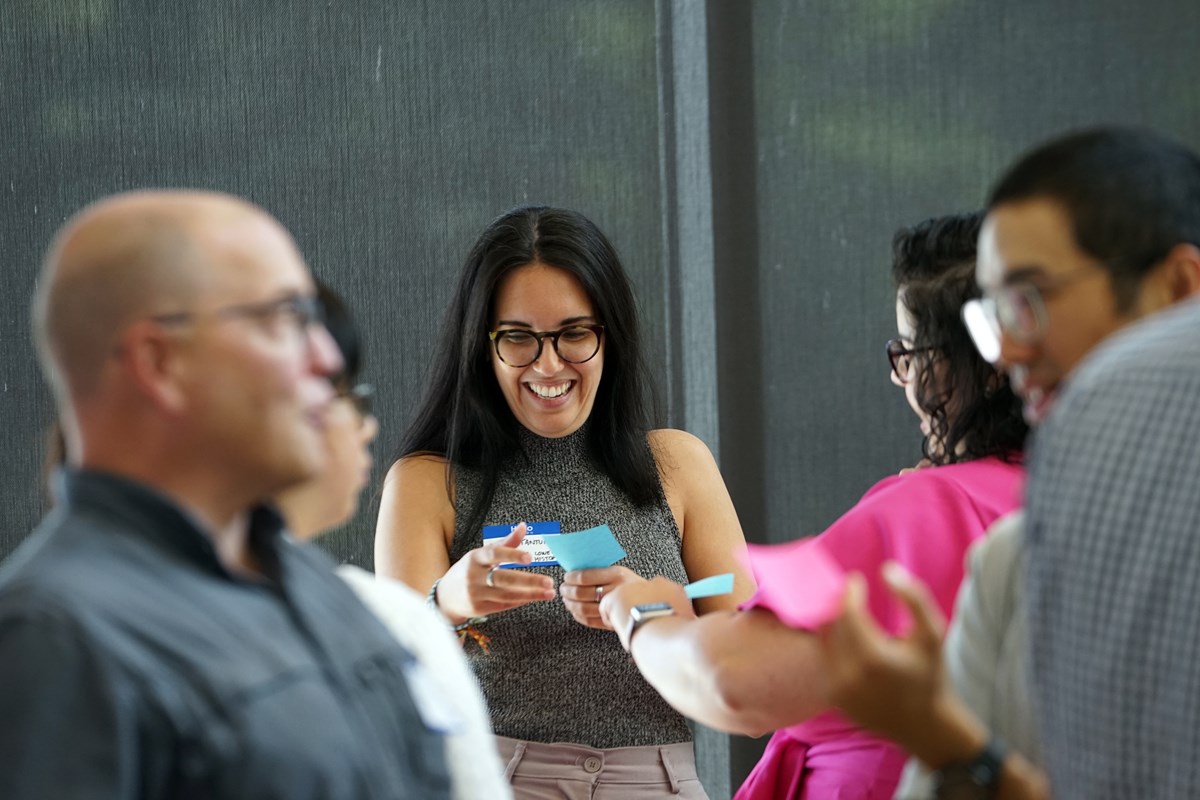
Faculty members participate in an engaging icebreaker activity, encouraging new connections and lighthearted conversations before diving into discussions about campus resources.
Current UMass Lowell faculty are encouraged to submit a brief blurb about themselves, encompassing both their personal and professional interests.
This blurb will serve as a window into your world, allowing new faculty members to identify with you and forge bonds based on common interests and experiences.
Please take a minute to apply to be a Faculty mentor:
Faculty UMentor Volunteer Application
Discover your UMentorsWhat Will Mentorship Entail:
The CELT mentoring faculty fellows will facilitate opportunities for new faculty to interact with mentors allowing them to organically form a RiverHawk network. Mentors will be expected to join a group messaging app this summer and offer advice to new faculty as they prepare to join our community in the fall. Mentors are also expected to join social and professional development activities as able during the academic year.
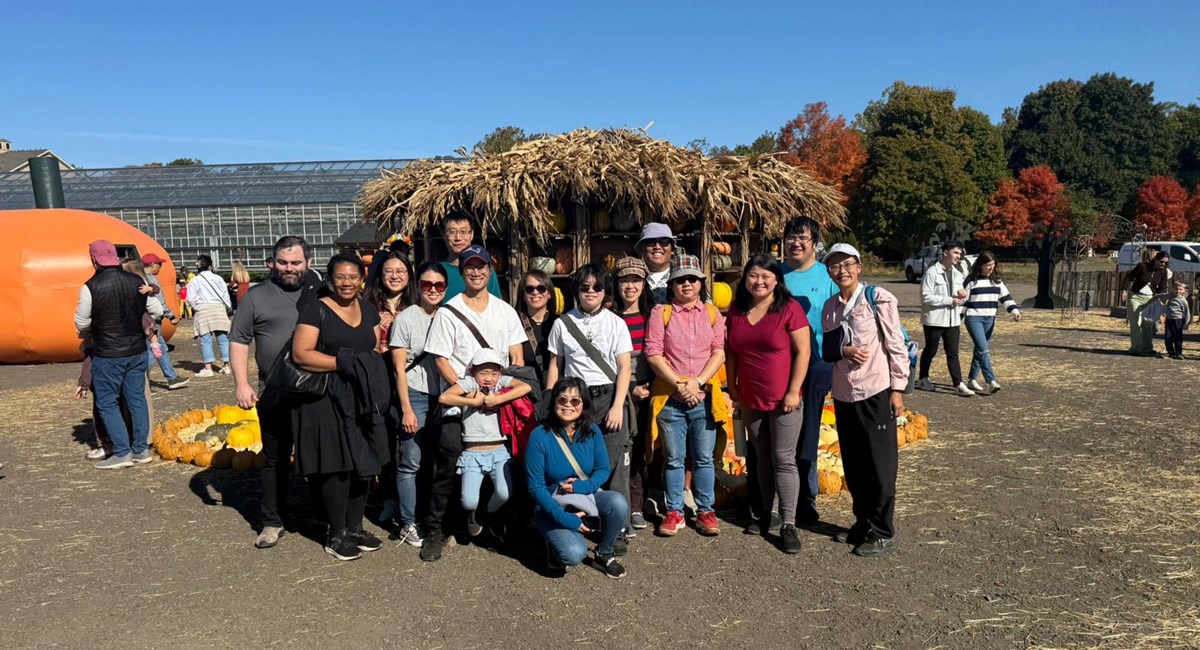
Faculty and mentors gather for a relaxing social event at a local fall farm, where they enjoyed seasonal activities, fostering organic relationships and deeper bonding in a picturesque autumn setting.
Here some additional mentoring resources to get you started. Click on the plus (+) signs to expand and contract the sections below.

